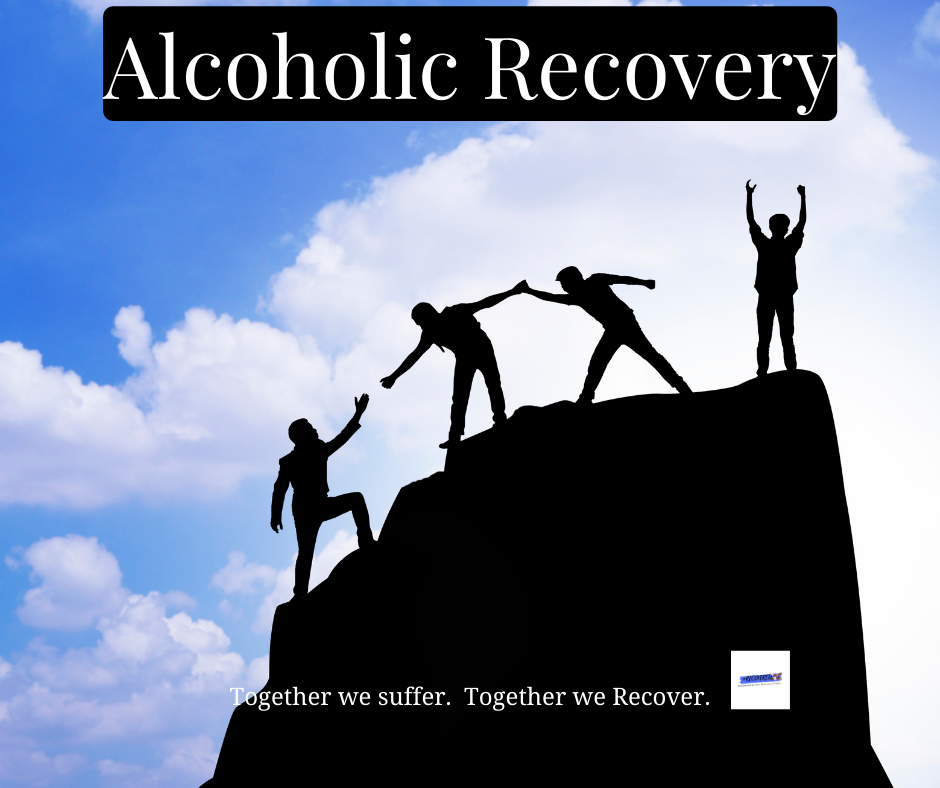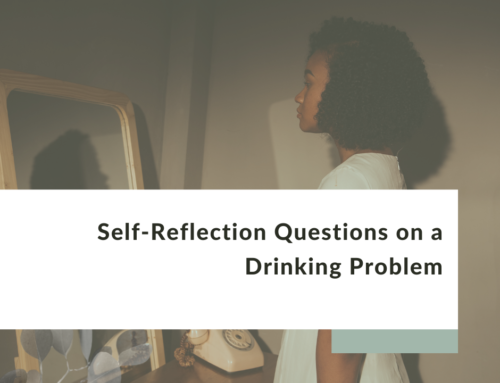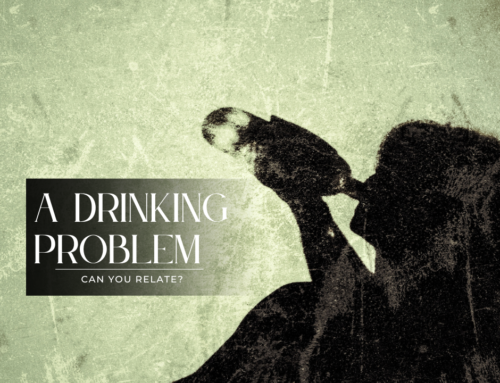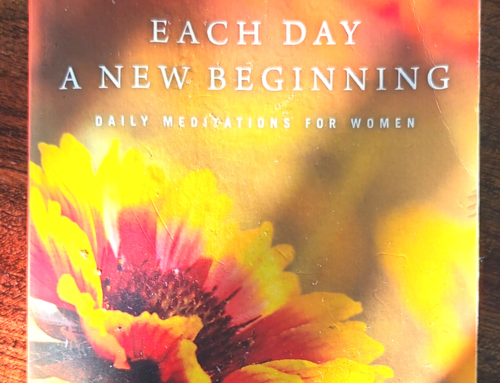There are many ways that people have found success in staying sober. However, for those suffering with the disease of alcoholism, sobriety is only a start to Recovery. As an illustration of this warning, see the following quote from the Alcoholics Anonymous text.
“Of course an alcoholic ought to be freed from his physical craving for liquor…before psychological measures can be of maximum benefit.” – Alcoholics Anonymous, p.4
“In our belief any scheme of combating alcoholism which proposes to shield the sick man from temptation is doomed to failure. If the alcoholic tried to shield himself, he may succeed for a time, but usually winds up with a bigger explosion than ever…These attempts to do the impossible have always failed.” – Alcoholics Anonymous, p.114
Surprising to most is the fact that Alcoholic Recovery has little to do with alcohol, which is why the substance is only mentioned in the first half of the first step. The other 11 1/2 out of 12 steps actually solve and remove the underlying problems of the suffering and sick Spirit.
This is a journey of self-discovery and Spiritual Recovery that can be loosely summarized as a process of admission, spirituality, inventory, restitution, and active work. As a result, not only is the obsession to drink removed but one also experiences being restored to their right mind.
Although it is well-known that there is no cure for the disease of alcoholism, the 12-Steps to Spiritual Recovery does serve as a solution. Alcoholic Recovery is possible and happening every day.
“We will seldom be interested in liquor. If tempted, we recoil from it as from a hot flame. We react sanely and normally and find that this has happened automatically.”
In the hope of spreading awareness of a solution to an illness killing many, this post will share the following about the 12-Steps to Acoholic Recovery.
Table of Contents
- Firstly, Sober Misconceptions.
- Secondly, Physical Recovery.
- Thirdly, Mental Recovery.
- Finally, How does Alcoholic Recovery work?
Sober Misconceptions
To begin, this section will clarify some popular sober misconceptions along with the Recovered truth. Keep reading to learn more about living sober as a result of the 12-Steps to Alcoholic Recovery.
- But if I get sober, then I have to avoid family, friends, and triggering places.
In Recovery, one does not need to fear alcohol. Furthermore, while many choose to, we most certainly do not need to limit our social lives to those in AA or those who are sober. A person who is avoiding people, places, and things to fight for sobriety and/or fight craving alcohol is experiencing a warning that they still have an alcoholic mind, and in this state any sobriety will be fleeting.
“Assuming we are spiritually fit, we can do all sorts of things alcoholics are not supposed to do. People have said we must not have it in our homes; we must shun friends who drink; we must avoid moving pictures which show drinking scenes; we must not go into bars; our friends must hide their bottles if we go to their houses; we mustn’t think or be reminded about alcohol at all. Our experience shows that this is not necessarily so.
We meet these conditions every day. An alcoholic who cannot meet them, still has an alcoholic mind: there is something the matter with his spiritual status. [Their] only chance for sobriety would be some place like Greenland Ice and even there an Eskimo might turn up with a bottle of scotch and ruin everything!”
– Alcoholics Anonymous p.113
Once an alcoholic, always an alcoholic.
It bears repeating, there is a Solution. While surrendering to a program of Recovery, the concession to alcoholism is necessary for one to begin. However, it is important to note that this “alcoholic concession” is made on the first of twelve steps only. Many fellowships unfortunately teach people to hold on to, and to accept, the alcoholic illness as an identity. Thus, rejecting the promises of the program of Recovery.
“Thus was our friend’s cornerstone fixed in place. No later vicissitude has shaken it. His alcoholic problem was taken away.”
– Alcoholics Anonymous
Alcoholic Recovery – The Physical
Physical Recovery from the alcoholic illness is, in a word, sobriety. The alcoholic physical allergy, as discussed on the Alcoholism page, affects the body, as does physical Recovery.
For an illustration of physical Recovery, explore the quotes below from the text of Alcoholics Anonymous.
PHYSICAL RECOVERY
“We see that our new attitude toward liquor has been given us without any thought or effort on our part, it just comes! This is the miracle of it. We are not fighting it, neither are we avoiding temptation. We feel as though we had been placed in a position of neutrality – safe and protected.”
“On the other hand – and strange as this may seem to those who do not understand – once a psychic change has occurred, the very same person who seemed doomed, who had so many problems he despaired of ever solving them, suddenly finds himself easily able to control his desire for alcohol, the only effort necessary being that required to follow a few simple rules.”
“We have not even sworn off. Instead the problem has been removed. It no longer exist for us. We are neither cocky nor are we afraid. This is our experience. That is how we react so long as we keep in fit spiritual condition.”
“Doubtless you are curious to discover how and why, in the face of expert opinion to the contrary, we have Recovered from a hopeless state…if you are an alcoholic who wants to get over it, you may already be asking – ‘What do I have to do?'”
“Thus was our friend’s cornerstone fixed in place. No later vicissitude has shaken it. His alcoholic problem was taken away.”
Alcoholic Mental Recovery
At this time, we will share on the alcoholic mental Recovery. A mental restoration is what solves the “crux” of the alcoholic problem, empowering a suffering alcoholic with the restoration of their right mind, clear intuitive direction, and freedom from the alcoholic mental insanity.
“Save for a few brief moments of temptation the thought of drink has never returned; and at such times a great revulsion has risen up in him. Seemingly he could not drink even if he would. God had restored his sanity.”
“Even so has God restored us all to our right minds.”
– Alcoholics Anonymous
For an illustration of mental Recovery, see the excerpts below shared from the text of Alcoholics Anonymous.
More on Mental Recovery
“We will seldom be interested in liquor. If tempted, we recoil from it as from a hot flame. We react sanely and normally and find that this has happened automatically.”
A doctor witnesses the magic of The Program.
“He accepted the plan outlined in this book. One year later he called to see me, and I experienced a very strange sensation….From a trembling, despairing, nervous wreck, had emerged a man brimming over with self-reliance and contentment.”
“Even so has God restored us all to our right minds. To this man, the revelation was sudden. Some of us grow into it more slowly. But [God] has come to all who have honestly sought Him.”
Millions of souls who once suffered alcoholically have solved the drink problem, having solved both the physical obsession and the mental insanity.
In other words, in Recovery the alcoholic problem is removed. Contrary to popular belief, a Recovered alcoholic will neither live a life avoiding friends nor fighting cravings. Instead, the problem surely will no longer exist. Even if tempted, one recoils from alcohol as you would a hot flame.
“As we felt a new power flow in, as we enjoyed peace of mind, as we discovered we could face life successfully, as we became conscious of [God’s] presence, we began to lose our fear of today, tomorrow, or the hereafter. We were reborn.”
– Alcoholics Anonymous

An Introduction to Alcoholic Recovery
In conclusion of this alcoholic Recovery post, we introduce the actual Program. As previously stated, the 12-Step path can loosely be summed up as a process of admission, a spiritual phase, restitution, and active work. Along this 12-step journey to self-discovery and Spiritual Recovery, a complete and holistic psychic change happens in the person. A change that must happen, in one way or another, in order for one to recover from alcoholism.







